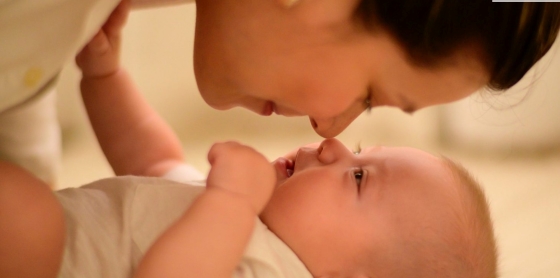 First-Ever Study Provides High-Tech Window on Mother-Child Brain Synchrony
First-Ever Study Provides High-Tech Window on Mother-Child Brain Synchrony
We’ve all had the experience of feeling “in synch” with another person, and mothers frequently describe feeling a “psychic connection” with their children. Groundbreaking new research from the University of Washington’s Institute for Brain and Learning Sciences (I-LABS) indicates that these descriptions are more than handy metaphors.
In an experiment that’s the first of its kind in the world, I-LABS, in collaboration with Japanese and Taiwanese brain scientists, conducted a study of the neural connection between mothers and their 5-year-old children using dual MEG brain-imaging devices. MEG, or magnetoencephalography, is a safe, silent, precise technique for investigating human brain activity. The ultra-high-tech device allows brain activity to be measured millisecond-by-millisecond and maps down to the millimeter where in the brain that activity is produced.
Previous research by I-LABS scientists has shown that verbal turn-taking and imitation are essential in young children’s language learning and social development, and that their language learning happens only via social interaction with other people. But how parents and children coordinate their brain activity during these social interactions has been an intriguing mystery. With the development of a dual-MEG setup, it has become possible to observe those interactions in real time right where they’re happening in the brains of mother-child pairs.
Click here to read the full article.
